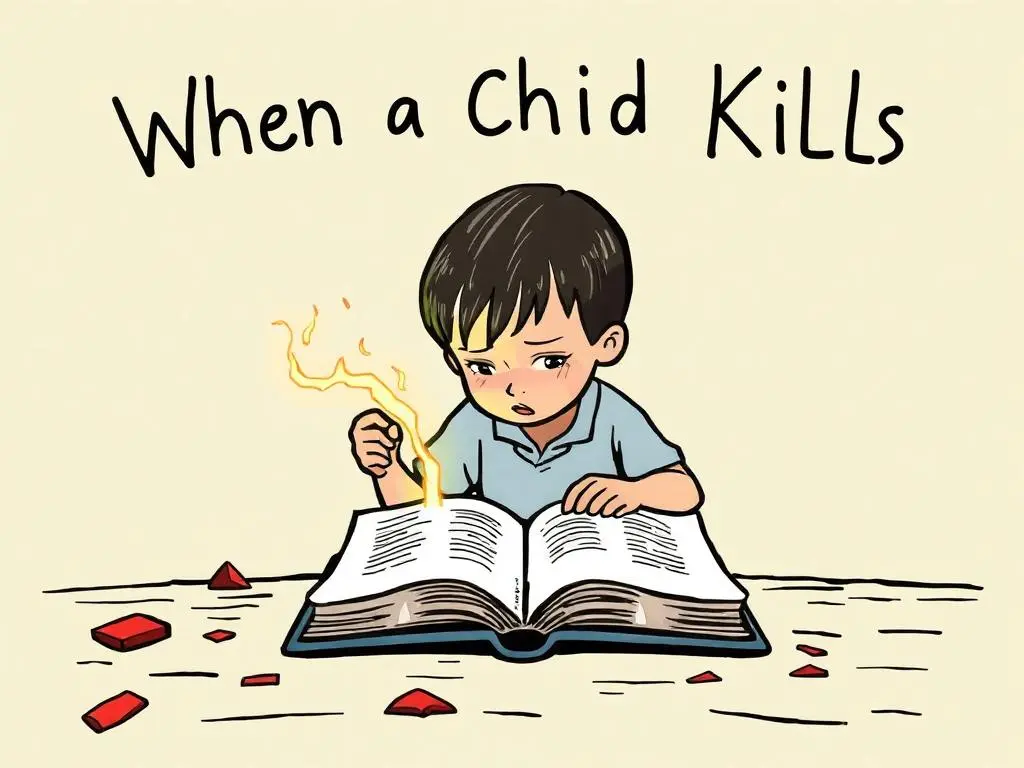A Coke-Snorting Oligarch, a Gangrenous Finger and Other Noir Delights

LIKE FLIES FROM AFAR
By K. Ferrari
Translated by Adrian Nathan West
204 pp. Farrar, Straus & Giroux. $25.
Subtlety is not something Ferrari has time for. He barrels through this blackly comic story the way his protagonist, Luis Machi, barrels through life: loud, crude and indifferent to the finer points of character and plot as he rushes inexorably toward doom. His novel tracks a day in the life of a grotesque oligarch who cares more for his collection of 300 silk ties than for his family, considers women as disposable as cigars and spends more on coke than he does on his workers. It opens in the morning, when, after partying all night with his mistress, Machi calls his wife to order breakfast, only to find that someone has punctured a tire on his $200,000 BMW. Even worse, there’s an unidentified body in the trunk.
From here on, the book is a frantic journey through a nightmare version of Buenos Aires, as Machi, with increasing desperation, struggles to unload the corpse and eliminate the evidence, all the while considering who might have set him up. The hard-working employee he fired for taking one day off? The coach of the boxer he drove to suicide with a fixed fight? The former mistresses he dumped? The leftists he framed? The brutal gangsters he double-crossed? The even more brutal former government torturer he employs? How about his long-suffering wife, her wealthy father or his own kids? It’s hard to eliminate suspects when everyone has a motive. The moral of this tale is simple: “I’m all alone.”
Heavy on action and dark humor — fluidly rendered in West’s translation from the original Spanish — “Like Flies From Afar” is for those who like their noir fast, short and nasty. Ferrari, the author of several previous novels, works as a janitor in a Buenos Aires subway station, a job he obtained after he and his wife were deported from the United States in the 1990s. His disabused perspective peeks through the details: Machi tosses his college-age daughter’s book out the window; it’s “The Order of Things,” by Michel Foucault, the French philosopher who, unbeknown to Machi, is against everything he stands for. The novel’s title is drawn from Borges, whom Machi despises. And there are epigraphs from Marx and Jim Thompson, America’s homegrown noir genius, who specialized in characters caught in hells of their own making, even when, like Machi, they think they’re living in a capitalist paradise.
A LONG WAY OFF
By Pascal Garnier
Translated by Emily Boyce
124 pp. Gallic Books. Paper, $14.95.
In this taut, unsettling tale, Marc, a reasonably content married man, goes to visit his mentally disabled daughter, Anne, and, on impulse, takes her and his fat lazy cat on a “journey into the abyss” — or, rather, to Agen, a town known mainly for its prunes. Disturbing events ensue: The cat is stuffed in a pillowcase; the young African man whom Marc hires to sleep with Anne goes missing; Marc cuts his finger on an African fetish and it becomes infected. Marc realizes they’ve made a wrong turn, but feels it’s too late, “like a trapeze artist bouncing into the net after a failed trick, caught in a spider’s web he could no longer escape from.”
Garnier, the author of more than 60 books, died in 2010. His psychological thrillers are in the tradition of Georges Simenon’s romans durs, and Boyce’s lucid translation of this, his final book, feels true to that bleakly lyric vision, though one wonders about the “children’s books” listed in his oeuvre.
If you imagine a road trip through France as a beautiful idyll, this is not the guidebook you want: a landscape of bad cafes, lonely hotels, awful pizza, demolished homes and derelict factories, peopled by the hitchhikers, desperate immigrants and homeless vagrants. But with Anne’s blond Afro and multicolored clothes, Marc’s gangrenous finger and the increasingly bizarre conversations they have in their camper, a vein of wild humor runs through the gray. More absurdist than existentialist, this is a book in which a character can reasonably reflect: “Sooner or later, a Zoltan always makes his way into your life, just when you’ve made up your mind to have your finger amputated by your daughter.”
SECOND SISTER
By Chan Ho-Kei
Translated by Jeremy Tiang
495 pp. Black Cat. Paper, $17.
Alone in the teeming metropolis of Hong Kong, Nga-Yee is a quiet, unassuming librarian, driven by grief to investigate her little sister’s suicide. At first, Chan’s novel moves at a lugubrious pace; there are many pages detailing Nga-Yee’s miserable family history before we get to the tragedy that triggers the plot. But if the road is long, there are twists and turns ahead. Meanwhile, enjoy the side trips, detailing everything from international venture capital and Hong Kong’s public housing rules to how to cook proper won tons and hack a stranger’s phone in a Starbucks.
“Second Sister,” in Tiang’s colloquial translation from the original Chinese, reads more like a mainstream mystery than a noir until we meet N, the enigmatic hacker Nga-Yee hires when her conventional private eye can’t hack the job. And conventional N is not: He’s a scruffy bum lurking in a filthy apartment, rude and dismissive of Nga-Yee’s loss. But then he demonstrates his super tech skills, scaring off Triad gangsters who kidnap them and charging Nga-Yee exactly the amount in her savings account, which he just happens to know, before sending her out for won tons, of course.
Their investigation takes us from creepy commuter-train-gropers to the dark reaches of the internet, where evil festers in many forms — online bullies and sexual predators as well as shady tech businesses, fake websites and chat rooms, even voices in people’s heads. If you’re not nervous reading “Second Sister” on the subway, you will be when you venture online.
Chan has designed an elaborate plot, but as the reversals and red herrings proliferate, the deepest mystery remains N himself. Is he an antisocial nerd playing anarchic tricks? An amoral hacker out for money? A ruthless underworld figure? Or something far stranger: “the soul of revenge”? Slowly, Nga-Yee comes to fear the destructive force she has unleashed and the devil’s pact they’ve made. What does N say? He claims he is, like the internet itself, merely “a tool, like a knife. How you use me, and for what reason, is entirely up to you.”




